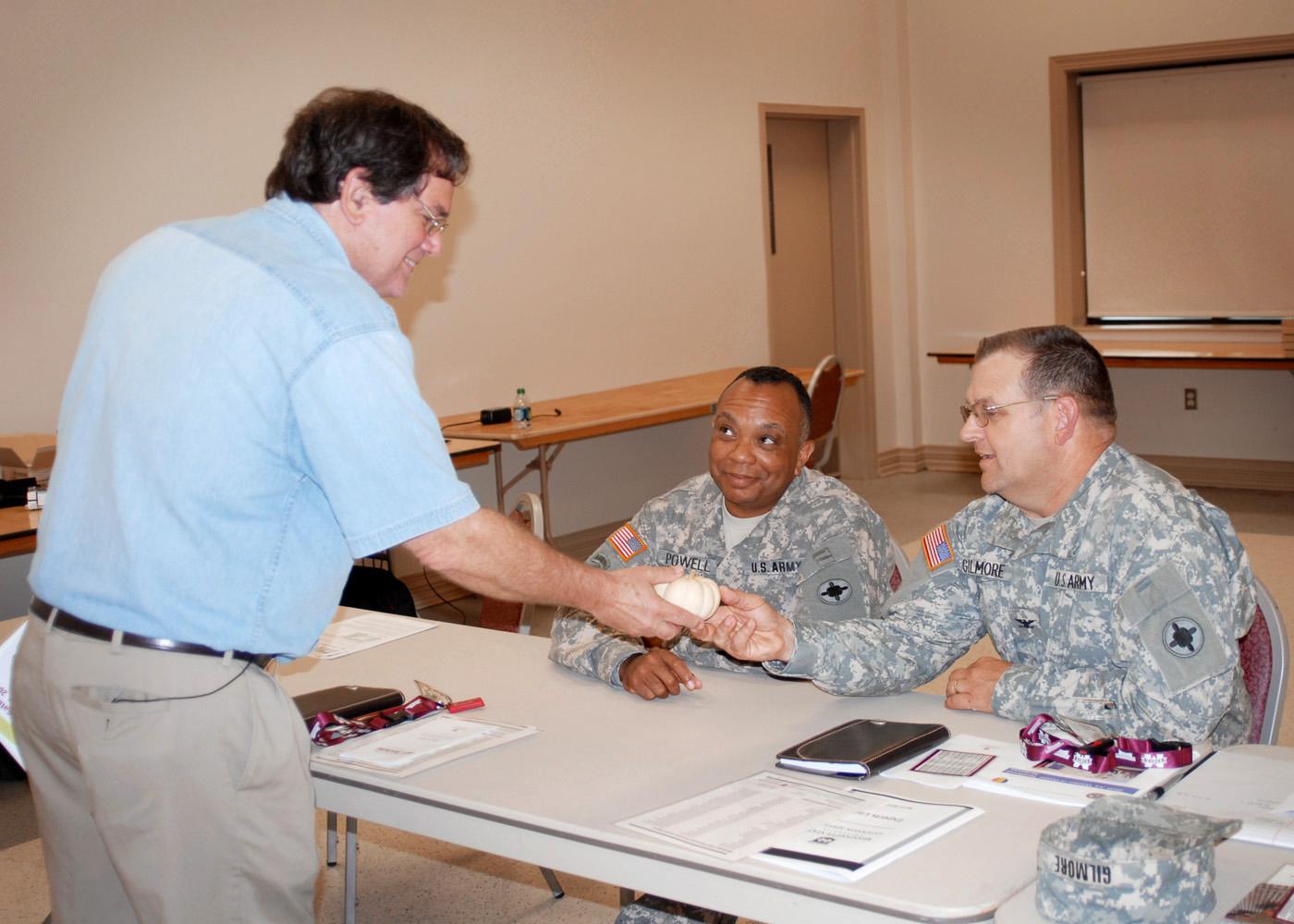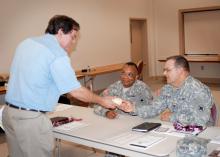Information Possibly Outdated
The information presented on this page was originally released on May 17, 2012. It may not be outdated, but please search our site for more current information. If you plan to quote or reference this information in a publication, please check with the Extension specialist or author before proceeding.
Mississippi Extension supports troops' efforts
HATTIESBURG -- Mississippi’s Extension agents are not being deployed to Afghanistan, but their agricultural and food preservation information is.
Mississippi State University Extension Director Gary Jackson said agricultural specialists recently trained an elite group of military personnel preparing to assist the Afghan Ministry of Agriculture. After they are deployed, these men and women will maintain their contact with MSU specialists for ongoing needs and questions as they assist Afghan agricultural agents with demonstration food plots and similar responsibilities.
“MSU Extension specialists and agents have a wealth of knowledge about agriculture and about training communities to grow and preserve their own food,” Jackson said. “This is an opportunity to help one of the poorest provinces of a country trying to recover from years of turmoil.”
In early May, the MSU Extension Service trained a dozen members of the Agri-Business Development Team, a detachment of the 31st Rear Operations Center based out of Mississippi’s Camp Shelby. They are anticipating a 10-month deployment to Afghanistan.
Col. Bert Gilmore is a member of the team and a 1983 and 1986 graduate of MSU. He said members of the team stepped forward when a call went out for volunteers with agricultural backgrounds. Gilmore, who is currently fulltime with the National Guard, is a former vocational agriculture teacher. Other members of the team have backgrounds in agricultural economics, veterinary medicine, cattle production, plant pathology, agronomy and related fields.
“We will be replacing a similar team from Minnesota, and our job will be to support the governmental workers who function like American Extension agents,” Gilmore said. “This is a chance to improve the relationship between the local people and their government. Some Afghans may do things for the Taliban because they need money to feed their families. This could increase the trust locals have for their government.”
Of the 12 team members, Dr. David Powell, a preventative medical veterinary corps officer, is the only one who has a previous deployment to the country. This will be his third medical/veterinary mission to Afghanistan.
“I anticipate working to improve herd health conditions for the sheep and goats in the area. Most problems tend to be nutrition or parasites. The drought causes some challenges,” said the 1989 graduate of the Tuskegee University School of Veterinary Medicine. “There also will be a need for poultry assistance.”
Extension horticulturist David Nagel told the team that most of their challenges would be related to lack of rain. With an average of 4 inches of rainfall annually, their crops will depend on irrigation.
“Too much water can be just as detrimental as not enough,” he said. “Transplants require shorter growing seasons, which is a good option when there is a shortage of water.”
Nagel said one goal is to help Afghans grow crops for consumption throughout the winter months.
“Winter squash, such as butternut and spaghetti squash, have hard shells and can last a long time in the right conditions,” he said. “Properly constructed root cellars can hold produce for months.”
The Agri-Business Development Team covered topics including irrigation and water conservation, beekeeping, weed management, disease and insect management, livestock, poultry, farm management and economics, and food safety and processing. In addition to five days of classroom training, the team toured a goat farm near Wiggins and MSU’s Beaumont Horticulture Unit in Perry County.
Joe Street, Extension associate director and state program leader for agriculture, described the training as a privilege for the Extension Service and an opportunity for him to give back to his former unit. Street retired as commander of the 31st Rear Operations Center in 1998.
“This was a great opportunity for MSU Extension to support the troops and their efforts to improve the lives of people in Afghanistan,” he said. “The military puts a priority on training, and so do our Extension personnel. We know that the more prepared people are for the challenges, the better the results will be.”



